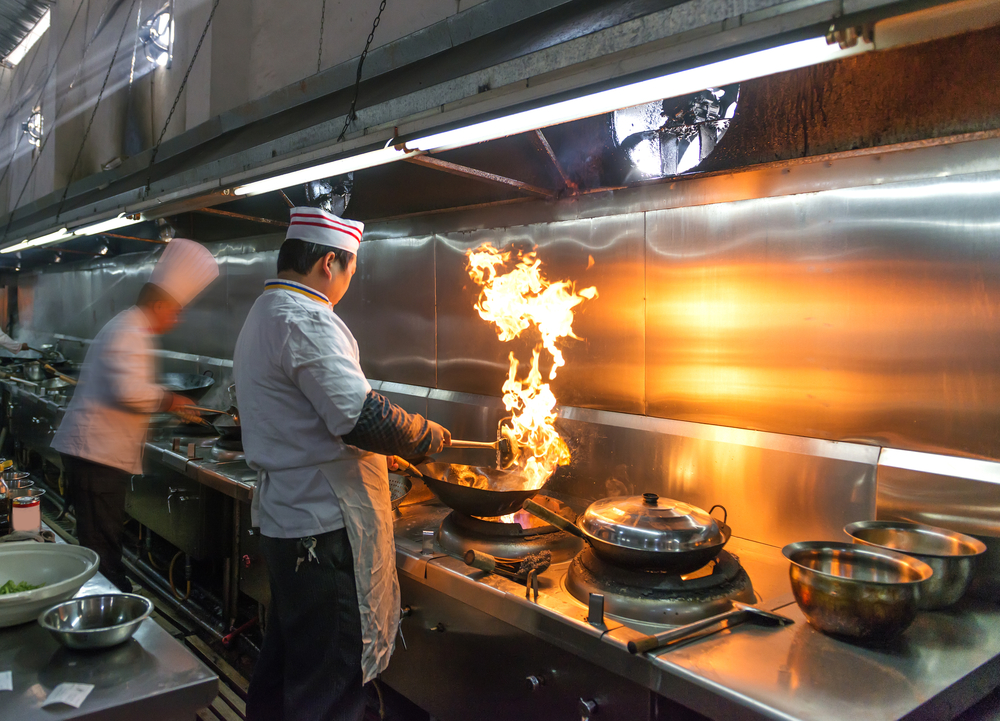High-profile meetings to lay down blueprints for future development usually take place at year’s end, but the one convened earlier this month is nonetheless of great significance as President Xi Jinping vowed to make up for covid-19-induced losses and strive for good economic results for the rest of the year.
In the following article, Liu Qiao, dean of Peking University’s Guanghua School of Management, shares his insights into Xi’s speech and the signals sent from the meeting.

At the meeting, seven entrepreneurs representing businesses of various ownerships shared their opinions and made suggestions on the current economic situation, touching on aspects of the protection of market entities, sci-tech innovation, deepening reform and the 14th five-year plan. Xi interacted with them.
This arrangement shows that authorities’ understanding of market entities that support the Chinese economy’s micro-foundations is getting deeper and more comprehensive. These market entities encompass businesses of all types of ownerships, including 38.58 million firms and 82.61 million individual businesses.
High on the agenda of the meeting, individual businesses, though usually small in size, have employed 200 million people. Regardless of size and backgrounds, these market entities will keep on playing a key, active role in the recovery and quality development of China’s economy. As Xi said, these market entities are a main force in the country’s economic activities, job provision and technological progress.
Meanwhile, the attendees came from a wide spectrum of sectors, from traditional heavy industries to high-tech fields as well as those related to services and consumer spending.
Vowing to spur the vitality of market entities and promote entrepreneurship, Xi reiterated that the government functions as a maker of rules, carer of a fair and just environment and provider of public services so that the country will have a better business environment and firms enjoy a high level of independence and innovation.
In particular, Xi called for efforts to support entrepreneurs to be free from distractions, make long-term plans and manage businesses with perseverance. This is of great importance to businesspeople both during and after this pandemic. This is how they can be confident.

QUALITIES FOR ENTREPRENEURS
In addition to support, Xi also voiced his expectations from entrepreneurs, calling on them to promote entrepreneurship and seek self-improvement in terms of patriotism, innovation, integrity, social responsibility and global vision, in order to lead enterprises out of the immediate plight and toward a brighter future.
Entrepreneurship is closely related to the zeitgeist. As the world is following a trend of isolationism and anti-globalization, China still lacks some core technologies and components to create its own independent supply chain. Against this background, businesspeople should strive for innovation, invest in research and development and analyze global industrial patterns so as to contribute to the building of such a supply chain and, in turn, shore up the country’s strategic security and economic security.
Innovation is closely tied to patriotism. As China is facing potentially ground-shaking changes in the global political and economic circles, Chinese firms shoulder a crucial responsibility to make up for the country’s inadequacy in core technology and industries and push it higher up the value chain. Previously, Chinese firms did a great job focusing on clients and efficiency. Next, they need to make breakthroughs in science and technology. Consequently, firms need to increase their R&D investment and strive to swim upstream along the global manufacturing value chain. This is also of key importance for China to overcome medium- and long-term challenges and embrace quality development.
Meanwhile, integrity and social responsibility are also key qualities of a successful entrepreneur. While integrity means businesspeople should stick to laws and regulations, uphold the spirit of contract and be honest and trustworthy, social responsibility requires them to constantly create values. However, as the coronavirus dealt the heaviest blow to consumer spending and smaller businesses. employment becomes a huge concern. Firms adapting their businesses in an innovative manner in accordance with reality and government support are helping shore up economic recovery as well as employment, and that is how firms fulfill their social responsibilities in this special time. Since the impact of this pandemic will remain for a long time, firms need to explore more innovations and changes in response.
Global vision is another requirement for entrepreneurs. As the world’s second largest economy that contributes some 17 percent of global GDP, Chinese firms should not be satisfied with their domestic operations and willingly give up the rest 83 percent of the world’s market. Globalization should be high on the agenda of Chinese businesspeople, and they need to be patiently studying global trends and increase R&D input in order to get on higher grounds.
A global vision requires entrepreneurs to focus on both domestic cycles and global cycles and effectively integrate both. How can firms cope with exterior impact amid negative impacts from anti-globalization and the pandemic? Vast domestic demand is both the starting point and core advantage of the Chinese economy. Consumption is playing an increasingly big role in boosting economic growth, taking up 57.8 percent of the country’s GDP. With a huge middle-class population on the rise, Chinese economy might enjoy a greater push from consumer spending on its way to becoming the world’s largest spending market. This means the country’s economy will be very flexible and resilient, and its firms have ample room and resources to cope with various challenges.
However, it should be noted that China’s development can never be completely independent of the rest of the world, and this is evident in the country’s achievements from four decades of reform and opening up. Despite complicated global situations, China must continue to deepen reform and opening up in a more confident and steadfast manner, possibly expanding to the service sector, talent flow and science and technology exchanges on a global level. It is a must for China’s quality development.
China’s decision-making is largely accurate following the covid-19 outbreak, with a series of monetary tools and fiscal policies effectively stabilizing the general economy. Firms enjoyed lower financing costs and ample financial support, while increased government bond issuance and direct support to grassroots businesses and livelihoods helped market entities recover rapidly.
It is reasonable to be cautiously optimistic about the later half of China’s economic performances. After a sharp decline in the first quarter and steady recovery in the second, the country now bounced back to a growth of 3.2 percent. It is largely predicted that China might be the world’s only major economy that can achieve positive growth in 2020. Provided the global situations do not undergo more dramatic changes and China maintains its current recovery rhythm, the country’s economy might yet see a notable growth.
Generally speaking, 2020 is bound to be a singular year in history. Covid-19 is forcing people to reconsider economic patterns and future changes, and China is drafting its 14th five-year plan and embarking on a new path to basically realize socialist modernization in the first stage from 2020 to 2035. Right now, Chinese leaders are not only working to solve immediate problems but also pondering questions concerning the country’s long-term development. How the country should develop will be made clear in the 14th five-year plan.
A series of policies recently released targeting the supply-side structural reform indicate that China’s decision-makers, while staying alert to covid-19, has not neglected the country’s economic reform, and these efforts will lay the foundation for the Chinese economy to get back on track and enter a new phase of development.
 Programs
Programs